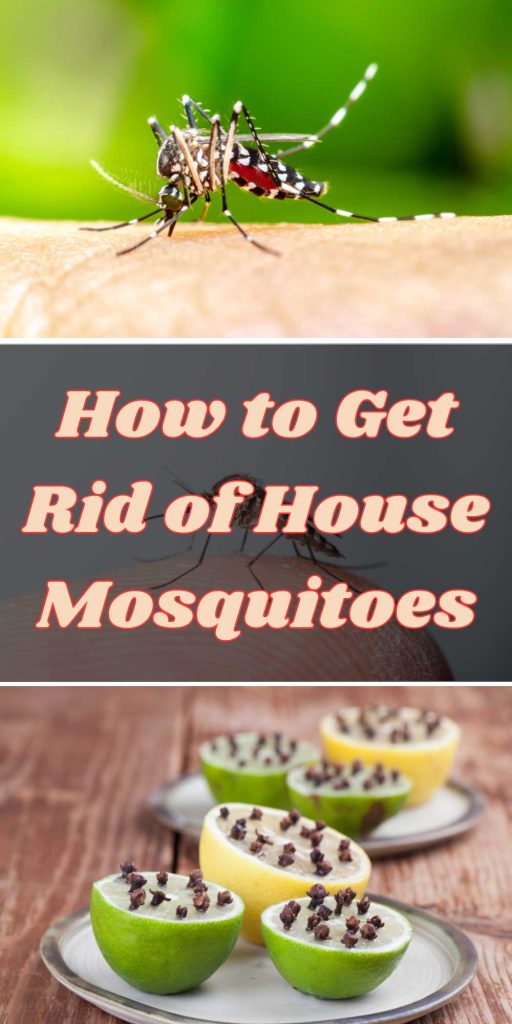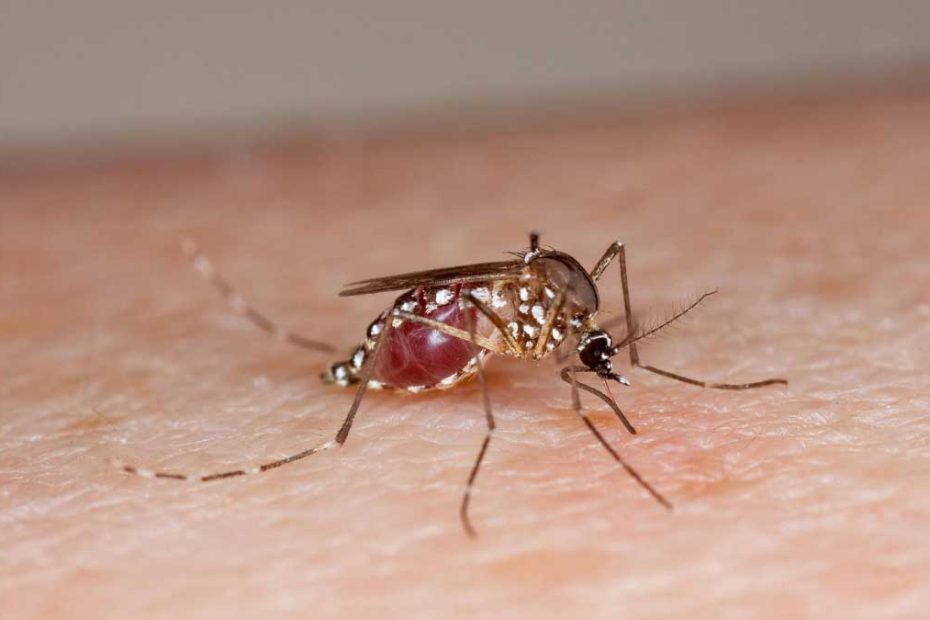Are you tired of that high-pitched buzzing in your ears and itchy bites on your skin? House mosquitoes are more than just a nuisance; they can pose health risks to you and your family. Fortunately, you don’t have to endure these unwelcome guests any longer.
Key Takeaways
- Understand Types and Risks: Familiarize yourself with common house mosquito types like Culex and Aedes, and the health risks associated with diseases they transmit such as West Nile Virus, Dengue Fever, Zika Virus, and Chikungunya.
- Eliminate Breeding Grounds: Remove stagnant water from areas like buckets, plant saucers, and puddles. Regularly clean gutters to reduce mosquito breeding sites.
- Install Physical Barriers: Use window screens and mosquito nets to prevent mosquitoes from entering your home and protect exposed areas during sleep.
- Natural Remedies: Employ essential oils like lemon eucalyptus and plants such as citronella to naturally repel mosquitoes without chemicals.
- Chemical Solutions: Utilize insect repellents containing DEET or Picaridin, and indoor sprays or fogging techniques for immediate and effective mosquito control.
- Technological Gadgets: Leverage mosquito zappers, ultrasonic repellents, and smart home solutions to maintain a mosquito-free environment through advanced technology.

Understanding House Mosquitoes
House mosquitoes are more than just a nuisance. These small, winged insects can disrupt your peace with their persistent buzzing and itchy bites. Eliminating them requires understanding their types and associated health risks.
Common Types of House Mosquitoes
Two common types of mosquitoes often invade homes:
- Culex Mosquitoes: These are primarily known for transmitting West Nile Virus. They breed in stagnant water and are most active at dusk and dawn.
- Aedes Mosquitoes: Known carriers of dengue, Zika, and chikungunya viruses. These mosquitoes are aggressive daytime biters and often found in urban areas.
Identifying these species helps in taking targeted preventive measures.
Health Risks Associated With Mosquitoes
Mosquitoes aren’t just irritating; they pose significant health risks due to their ability to transmit various diseases:
- West Nile Virus: Often carried by Culex mosquitoes, it can lead to severe infections such as encephalitis or meningitis.
- Dengue Fever: Transmitted by Aedes mosquitoes, causing high fever, severe headache, and joint pain.
- Zika Virus: Mainly spread by Aedes mosquitoes. It can result in birth defects when pregnant women are infected.
- Chikungunya: Also spread by Aedes mosquitoes, this disease leads to acute fever and severe joint pain.
Understanding these health risks underscores the importance of controlling mosquito populations in and around your home.
Preventive Measures
Effective preventive measures can eliminate house mosquitoes and reduce the health risks they pose. Here’s how you can carry out these strategies.
Eliminating Breeding Grounds
Removing places where mosquitoes breed is crucial.
Breeding Grounds:
- Stagnant Water: Empty water from buckets, tires, and plant saucers.
- Gutters: Clean gutters regularly to prevent water accumulation.
- Puddles: Fill puddles in your yard with soil.
By eliminating these breeding grounds, you hinder mosquito populations from growing.
Installing Window Screens
Window screens act as a physical barrier.
Steps to Install Window Screens:
- Measure Windows: Ensure accurate measurements for a snug fit.
- Select Material: Use fine mesh to block mosquitoes.
- Install Frames: Secure screens in place with frames.
Screens keep mosquitoes out while allowing fresh air in.
Using Mosquito Nets
Mosquito nets offer personal protection, especially during sleep.
- Coverage: Enclose sleeping areas completely.
- Impregnation: Use nets treated with insecticide for added protection.
- Portability: Easily transportable for travel or outdoor use.
Using mosquito nets reduces the chance of bites and disease transmission.
Implementing these preventive measures significantly lowers mosquito-related risks in your home.
Natural Remedies
Combatting house mosquitoes naturally offers a way to avoid chemicals while still ensuring a mosquito-free home. Let’s explore some effective natural remedies.
Essential Oils
Essential oils use the potent properties of plants to repel mosquitoes:
- Lemon Eucalyptus Oil: Its active ingredient, PMD, effectively repels mosquitoes.
- Lavender Oil: This oil deters mosquitoes while providing a pleasant aroma.
- Tea Tree Oil: Known for its antiseptic properties, it also repels mosquitoes.
- Peppermint Oil: Creates a hostile environment for mosquitoes and has a refreshing scent.
To use these oils, mix a few drops with carrier oil, like coconut or almond oil, and apply it to exposed skin.
Plants That Repel Mosquitoes
Certain plants naturally deter mosquitoes with their scents and oils:
- Citronella: Often found in candles, this plant’s natural oil repels mosquitoes.
- Marigolds: Their distinct smell deters mosquitoes, making them ideal for garden borders.
- Basil: Aside from culinary uses, basil repels mosquitoes with its strong scent.
- Catnip: Contains nepetalactone, which is more effective than DEET in repelling mosquitoes.
Place these plants in pots around your home, near windows, and in gardens to keep mosquitoes at bay.
Homemade Traps
Creating homemade traps helps reduce mosquito populations:
- Sugar Yeast Solution: Mix 1 cup of sugar with 1 cup of water and 1 teaspoon of yeast. Pour into a plastic bottle, cut in half, with the top inverted like a funnel. Mosquitoes are attracted and trapped inside.
- Dish Soap Trap: Fill a shallow dish with water and add a few drops of dish soap. Mosquitoes are drawn to the water and get trapped due to the soap.
These simple traps can be placed indoors and outdoors to capture and reduce mosquito numbers.
Implementing these natural remedies can significantly lower mosquito presence in your home, fostering a safer and more comfortable living environment.
Chemical Solutions
Chemical solutions can effectively eliminate house mosquitoes, providing quick relief from these pests. Using these methods can reduce mosquito populations indoors, minimizing the risk of mosquito-borne diseases.
Insect Repellents
Insect repellents can be an effective defense against mosquitoes. These products contain active ingredients designed to repel mosquitoes and other insects.
- DEET: Commonly used, offering long-lasting protection. Apply to exposed skin and clothing.
- Picaridin: Less irritating alternative to DEET. Safe on skin, non-greasy, and offers up to 12-hour protection.
- Permethrin: Used for treating clothing, gear, and bed nets. Do not apply directly to skin.
Always follow manufacturer instructions when using insect repellents to ensure safety and effectiveness.
Indoor Sprays
Indoor sprays can provide immediate mosquito control inside your home. These sprays target adult mosquitoes, quickly reducing their numbers.
- Pyrethroid-based sprays: Effective against a wide range of insects. Spray in areas where mosquitoes are known to rest, like under furniture, closets, and dark corners.
- Insect growth regulators (IGRs): Prevent mosquito larvae from maturing into adults. Apply around standing water indoors, such as in plant saucers.
Using indoor sprays can create a mosquito-free environment, reducing the chances of bites and disease transmission.
Fogging Techniques
Fogging techniques involve dispersing insecticide in the form of a fog, covering large areas effectively.
- Thermal fogging: Uses heat to vaporize liquid insecticide, creating a dense fog. Effective for outdoor areas and large indoor spaces.
- Ultra-low volume (ULV) fogging: Produces fine aerosol droplets, using less insecticide. Suitable for both indoor and outdoor use.
Utilizing fogging techniques can rapidly decrease mosquito populations, especially in heavily infested areas, offering long-term relief when used correctly.
Technological Gadgets
Advancements in technology offer many effective solutions for controlling house mosquitoes. Using these gadgets provides a modern, efficient way to reduce mosquito populations inside your home.
Mosquito Zappers
Mosquito zappers attract and kill mosquitoes using ultraviolet (UV) light. These devices are efficient and simple to use. Place them strategically around your home for maximum coverage.
Key Features:
- UV Light: Attracts mosquitoes and other flying insects.
- Electric Grid: Instantly kills mosquitoes upon contact.
- Safe Enclosure: Prevents accidental contact with the electric grid.
Ultrasonic Repellents
Ultrasonic repellents emit high-frequency sound waves to deter mosquitoes. These waves are inaudible to humans but disorient mosquitoes, keeping them away from your living spaces.
Key Features:
- Frequency Range: Typically between 20 kHz and 65 kHz.
- Coverage Area: Effective within a specified radius, usually around 150 square feet.
- Non-toxic: Safe for humans and pets as it uses no chemicals.
Smart Home Solutions
Smart home solutions integrate mosquito control into your homeâs ecosystem for seamless protection. Combining sensors and automation can craft a mosquito-free environment.
Key Features:
- Smart Sensors: Detect mosquito activity and trigger countermeasures.
- Automated Sprays: Release repellents or insecticides based on real-time data.
- Integration: Compatible with smart home systems like Amazon Alexa and Google Home.
- Install Sensors: Place smart sensors in high-risk areas.
- Set Triggers: Configure automated sprays to activate upon detecting mosquitoes.
- Monitor: Use connected apps to monitor mosquito activity and manage settings.
Embracing these technological solutions allows you to tackle mosquito problems efficiently, maintaining a comfortable and safe home environment.
Conclusion
Understanding the risks posed by house mosquitoes and knowing the types you’re dealing with is essential for effective control. By eliminating breeding grounds and using physical barriers like window screens and mosquito nets, you can significantly reduce their presence. Natural remedies, such as essential oils and mosquito-repelling plants, offer eco-friendly alternatives to chemical solutions.
When quick relief is needed, chemical repellents and indoor sprays provide immediate results. Technological gadgets like mosquito zappers and smart home solutions offer modern approaches to keeping your home mosquito-free. By combining these strategies, you can create a safer and more comfortable living environment for you and your family.
Frequently Asked Questions
What are the common types of house mosquitoes?
The two common types of house mosquitoes are Culex mosquitoes, which can transmit West Nile Virus, and Aedes mosquitoes, which are known carriers of dengue, Zika, and chikungunya viruses.
What health risks do house mosquitoes pose?
House mosquitoes can transmit serious diseases such as West Nile Virus, dengue, Zika, and chikungunya. These infections can cause severe illness, affect pregnant women, and pose significant health risks to families.
How can I prevent mosquitoes from breeding around my home?
To prevent mosquito breeding, eliminate stagnant water, clean gutters, and fill puddles in your yard. These steps remove potential breeding grounds, drastically reducing mosquito populations.
Are window screens effective in keeping mosquitoes out?
Yes, installing window screens acts as a physical barrier that keeps mosquitoes out while allowing fresh air in. This helps maintain a mosquito-free indoor environment.
What natural remedies can I use to repel mosquitoes?
Essential oils like lemon eucalyptus, lavender, tea tree, and peppermint are effective natural repellents. Additionally, planting citronella, marigolds, basil, and catnip around your home can deter mosquitoes.
Are homemade traps effective for mosquito control?
Homemade traps, such as a sugar yeast solution or a dish soap trap, can effectively reduce mosquito populations. These traps attract and kill mosquitoes, contributing to a safer living environment.
What chemical solutions are effective for mosquito elimination?
Insect repellents containing DEET, Picaridin, or Permethrin are effective. Indoor sprays, particularly pyrethroid-based and insect growth regulators, offer immediate control, and fogging techniques reduce mosquito populations in heavily infested areas.
What technological gadgets can help control house mosquitoes?
Mosquito zappers, which use UV light to kill mosquitoes, and ultrasonic repellents, which emit high-frequency sound waves, are effective. Smart home solutions with integrated mosquito control offer seamless and automated protection.
